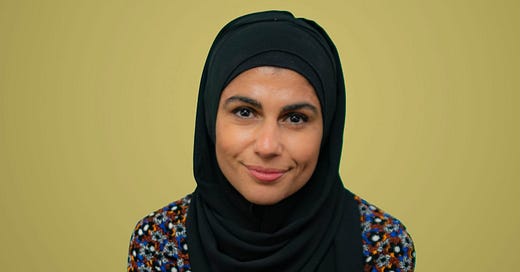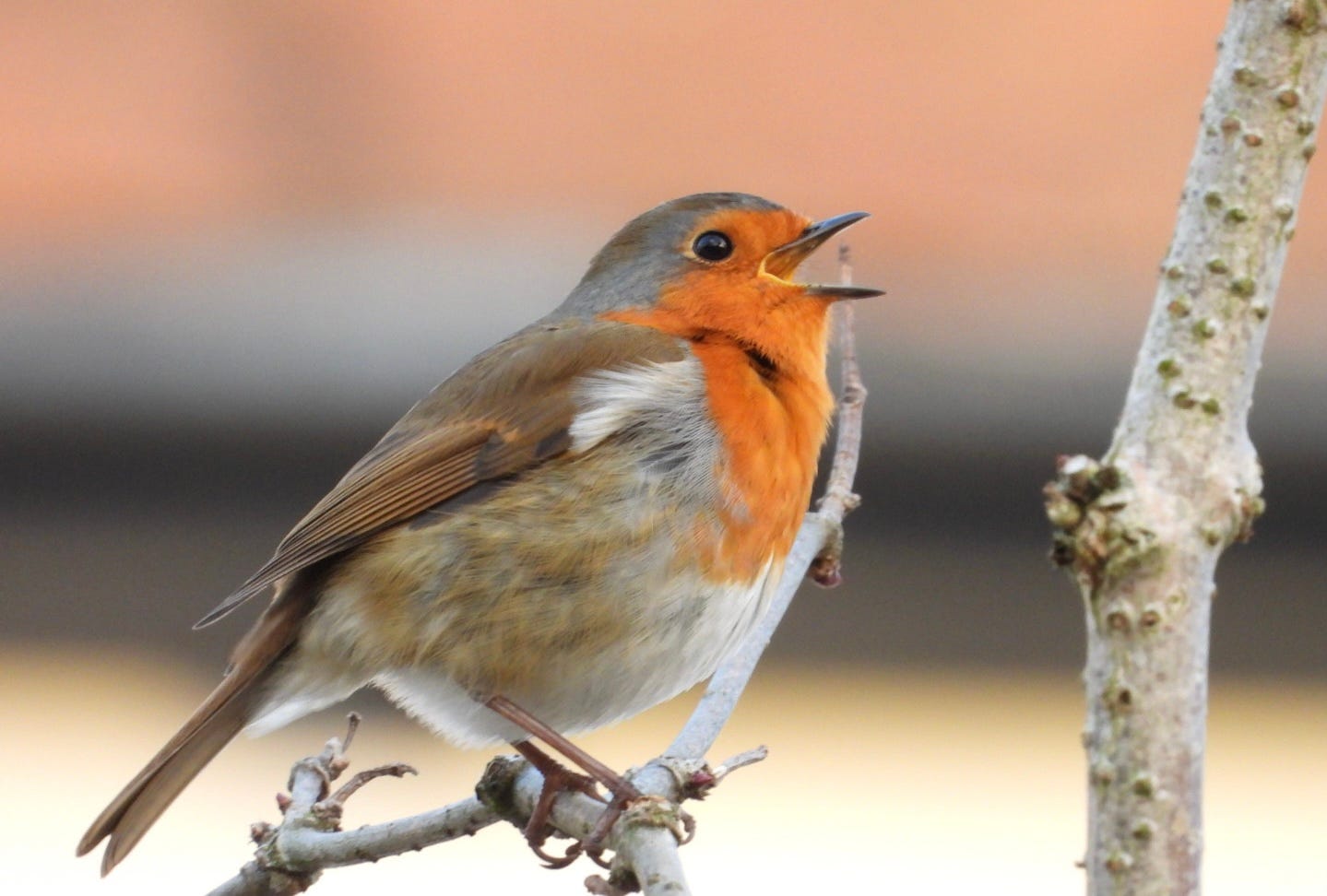Dear Reader,
Hello from London, where today there’s a flat grey sky as inspiring as a malfunctioning computer monitor. But never fear, I have good stuff to inspire you with in this round-up.
Happy new year, etc, but I won’t try to impress you with my thoughts on hopes and resolutions — it’ll be nearly Christmas before we know it, and obviously my personal aim is to be radically different in every way in 2024. Cleverer, fitter, nicer, funnier, tidier, calmer, all that. Cannot wait.
Good Stuff
Reading
I’ve suffered a run of aggressively great books, the kind that make a writer wonder why they bother at the same time as reaffirming that there’s nothing in the world they’d (I’d) rather do.
Transcendent Kingdom by Ghanaian-American novelist Yaa Gyasi sat on my dusty TBR since one of the Covid lockdowns and I’m pleased it’s now in my dusty brain. It’s about the scientist daughter of a Ghanaian family who emigrate to Alabama — in adulthood she’s trying to make sense of her brother’s addiction, her mother’s depression and her own grief, and she looks back at her childhood to do so as well as at the findings of her research lab. It’s a young-and-wise book, knowledge-seeking and not overly sentimental, a bit angry, a bit lost, smart but not overly knowing. For the writers in the room, it made me ponder narrative drive and story shape: it doesn’t push too hard but is confident and quietly compelling.
I gave The Swimmers by Julie Otsuka to my partner, an avid swimmer (medals and everything) for Christmas. When he’d failed to read it after a fortnight (too busy swimming) I took it back. This is a powerful little book — if you’re having a Claire Keegan hangover after So Late in the Day and Small Things Like These, here’s your answer. It’s a little more experimental: there’s a chorus voice in the first section about a swimming pool with a mysterious crack in the bottom, then the story departs the pool to follow the life story of one of the swimmers who has a form of dementia. Unpredictable structure, restrained, honest, moving, yum.
Edenglassie by Melissa Lucashenko, a split narrative between 2024 and 1854 in Queensland, has been called her “big book” and had me pinned to the sofa for a whole weekend (it’s big in scope, not a brick!). Thereafter it sent me down rabbit-holes wanting to know more about the First Nations rituals, languages and stories woven in the narrative — such as the story of resistance fighter Dundalli, the last person publicly executed in Queensland, or the fishing custom called “malgun” (fingertip removal).
In preparation for the release of Outlaw Girls, our fictional telling of Kate Kelly’s version of the two years her brothers were on the run, I came across a podcast called The Last Outlaws and followed the trail in Melissa Lucashenko’s Acknowledgements page to Frontier War Stories by Boe Spearim, which in turn led me to the episode featuring Rachel Perkins and reminded me to watch The Australia Wars (SBS, Binge, BBC iPlayer).
Just quickly: Sea of Tranquility by Emily St. John Mandel is a time-travelling sensation, urgent and big-thinking but less frantic than Station Eleven. And Into the Mouth of the Wolf, Erin Gough’s third YA novel (out in May), is impressive, engrossing, wonderfully written, a love letter to Gen Z as they come of age in a climate change denialist, slow-to-act and greedy world — a world they need to feel hopeful about. It’s action-packed, fun, and I loved its ambition.
Listening
Series 2 of Jon Ronson’s Things Fell Apart continues to explore the sometimes surprising origins of culture wars.
Non-murdery true crime with a fabulous sense of humour: Who Shat on the Floor At My Wedding?
Historian Lucy Worsley tells stories of Lady Killers from the 19th and 20th century.
Writing
I keep what I’m writing a secret until six weeks before publication but in this section I talk about process. I do this on the off-chance that the stage I’m at is the stage you’re at. If you’re not writing at the moment, skip down to Things I Can’t Tell You About.
We need to hear advice at the right time. You can study as many books on craft as you like but when you’re in the middle of a novel you can only cope with so much input.
I’ve just restructured the first 20k words of a probably 60k middle-grade novel. I didn’t want to restructure — I wanted to carry on writing into the deep forest of plotlessness and feeling — but I’ve been doing this too long and knew I’d end up writing three-novels-in-one again, my Achilles heel.
One of the benefits of doing structural edits for a living is that you develop strong instincts. I can feel the dip, or lag, or lack, I can sense the shape. The downside of this is how it affects my ‘shitty first drafts’. In my WIP, the central question of why stuff was happening to a character, the mechanics of the why, were a big mess of theories, a tease. I got scared and did two things:
Took my A3 pad and used one side to map a Hero’s Journey and the other to list all the character names and main traits, in their respective groups — family, friendship, teachers, authorities, random characters — and then all the obstacles in the mc’s way, the clues to solve the mystery, and what I am trying to say in this novel. Articulated instead of floating around with all the other brain gravel.
Did a chapter breakdown. This is the kind of exercise I find very dull but it’s what made me realise that my first turning point was really the second. Which meant unpicking that narrative build, moving scenes to a blank space in the manuscript up ahead, and rebuilding to a new first turning point. It messes up something that read nicely and made sense. It creates a terrifying gap. It’s progress but feels like going backwards. For me, 20k of a 60k novel is a good spot for this kind of appraisal.
Things I Can’t Tell You About
I’ve been invited to be a judge for this year’s Davitt Awards (for crime and mysteries written by women) and apparently there’s so much reading involved that I’ll be taken to a dank cellar furnished with a single lamp and a dilapidated yet surprisingly comfortable armchair and won’t be allowed to see daylight until I’ve judged my heart out. There will be ongoing supplies of Monte Carlos and tea.
Of course, I won’t be able to tell you about any of the books, which is quite the conundrum for someone who writes about them every month . . . But that’s tomorrow’s problem.
The Davitts were set up in 2001 by Sisters in Crime and named after Ellen Davitt, author of Australia’s first mystery novel in 1865.
Separate to the Davitts, later on in the year I’m taking part in a reading challenge to raise money for a particular charity, and I’d love to form a Voracious team. I’ll keep you posted.
Recent Posts Come Back To Haunt You
I was like Emily Dickinson over Christmas and New Year but if you’ve been partying hither and thither and missed a few emails, here’s a recap:
Free subscribers have access to The November/December Nutshell and The New Year’s Eve Edition, a short post with recommendations of books, TV, a word game, and a great podcast (A.I. for beginners).
If you’re thinking about a paid subscription, here’s a special offer:
Paid subscribers, I hope there’s something in this list for you. A warm welcome to new readers.
My vintage re-read was Forever by Judy Blume, which I found brilliant but contained a minor subplot that I must have blocked out, one that disappointed but hasn’t dampened my admiration for Blume. It’s about weight stigma — something that comes up frequently in my re-reads and always stops me in my tracks; my young brain would have absorbed it unchallenged. Are we better at this than we were in 1975 when Forever was published? Yes, I think so. But there’s still plenty of fatphobia in literature, including children’s.
A popular post was Birds Are Like Ideas in which I shared my hobby and how it relates to being a writer.
I loved my chat with writer H. Hayek, author of Huda and Me and Huda Was Here. Huda is a refreshing book character and real-life person (the H. stands for Huda) — an author who wasn’t reading and writing passionately from the word go but came to it through a desire to share the hilarious stories of her large Lebanese-Australian family.
Do you need a short pep talk about how hard writing is and how wonderful it can be? That’s here in Write Around Your Life.
I wrapped up my series 5 Mistakes I’ve Made as a Writer with a post about saying “no” instead of saying “help”. And in 2024 I am going to write about things I’ve done as a writer that were very clever and sensible instead! If I can think of five . . .
I’m spending a few more weeks in London and hope that the next nutshell will have a London flavour. Thank you for reading Voracious.
Goodbye January, here’s to February. X








Gorgeous post, Emily - and happy 2024! Melissa Lucashenko's new book sounds soooo good, I'll have to check it out! And so excited about Outlaw Girls, not long to go now!
"I wanted to carry on writing into the deep forest of plotlessness and feeling" - ouch, this cuts me to my soul... I'm glad you then offered a way out.